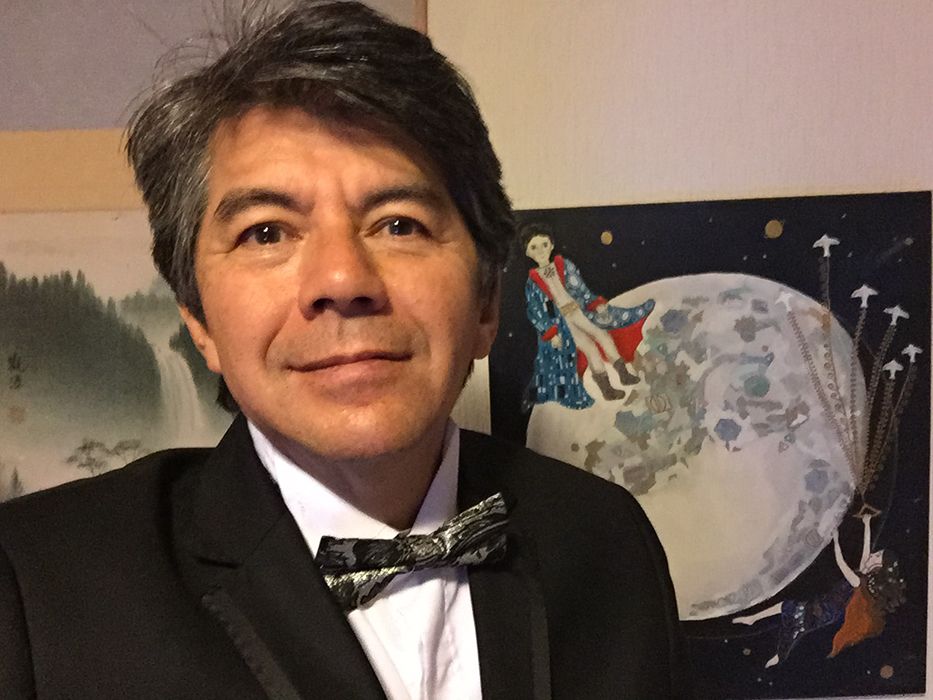Professor Bernard Foing
Bernard Foing, Ph.D. is Senior Scientist at the European Space Agency (ESA), Professor at VU University Amsterdam, and Executive Director of the International Exploration Working Group (ILEWG). He was the Principal Project Scientist for SMART-1 since its conception in 1996. It was the first European mission to the Moon at the European Space Agency (ESA), European Space Research and Technology Centre (ESTEC).
Bernard has been at ESA ESTEC since 1989. He was ESTEC staff committee chair between 2012 and 2017 and advisor to the Director-General between 2017 and 2019. He has also been Chief Scientist, Head of the Research Division, and Study Lead of SIMURIS interferometer, MORO lunar orbiter, EuroMoon lander, and Visiting Scientist Fellow.
At ILEWG, he has been promoting international collaborative projects on the Moon, such as a global robotic village, and a human base (Moon Village Collaboration). Previously, Bernard has worked at ESA as Head of the Research Division, and as Chief Scientist of its Space Science Department.
Since 2020, Bernard has been the Director of the ILEWG EuroMoonMars program. This program followed ICEUM declarations as a collaboration between ILEWG, space agencies, academia, universities and research institutions, and industries.
Bernard has developed instruments used on space probes and is known as the father of the successful SMART-1 mission to the Moon. Launched on September 27, 2003, SMART-1 entered lunar orbit in November 2004 and continued orbit until it was intentionally crashed into the lunar surface on September 3, 2006. SMART-1 was used to test new state-of-the-art instruments such as a solar-electric primary propulsion system and it also performed scientific observations of the Moon including determining the Moon’s mineralogical composition and the presence and quantity of water in the craters at the Moon’s south pole. Read the latest SMART-1 library of refereed papers from Bernard.
Bernard has been Co-investigator of space missions such as SOHO, XMM Newton, BIOPAN, COROT, Expose-ISS, BIOMEX, and Mars Express. He is a member of the ExoMars PanCam team, and the Principle Investigator for ExoGeoLab, ExoHab, and EuroMoonMars. He is also an organic chemist for the Mars Express, a space exploration mission and the first planetary mission attempted by ESA, launched on June 2, 2004. Since the start of science operations in 2004, this durable orbiter has given scientists an entirely new view of the planet and is helping to answer fundamental questions about the geology, atmosphere, surface environment, history of water, and potential for life on Mars.
Bernard is as also co-investigator of the High-Resolution Stereo Camera (HRSC) for the Mars Express orbiter. The HRSC is a high-resolution camera that can make full-color 3-D images of Mars’s surface. The camera can also zoom in for a closer look and may be helpful in identifying useful landing sites for future Mars missions.
Born in France, he was admitted at the Ecole Normale Supérieure of Education & Technology. He became Professor Agrégé of Physical sciences. He earned his Ph.D. in Astrophysics and Space Techniques using a sounding rocket ultraviolet camera experiment at CNRS. He did his postgrad research in the US (Palo Alto, Sacramento Peak, Boulder, and Harvard Observatory).
Bernard worked for 3 years in Chile as an astronomer for the ESO European Southern Observatory, at the French embassy, and as Professor of Astrophysics. He has been a permanent researcher at the CNRS Institut d’Astrophysique Spatiale since 1986, and he earned his Habilitation to direct research on Astrophysics and Space Science in 1990 from the University Paris-Sud. Bernard has been cited more than 7500 times with over 775 published articles, including 220 refereed papers, most notably on cosmic fullerene C60+, first super-Earth, and tropical Mars glaciers.
Bernard has published more than 16 books and is an organizer of more than 70 international symposiums and conferences.
Bernard is an active member of the International Astronomical Union (IAU), the International Astronautical Federation (IAF), Chair at the ITACCUS Socio Cultural Utilisation of Space (IAF), member of the IAF Space Exploration Committee (2018–2021), Vice-Chair at COSPAR Scientific Commission B: Space Studies of the Earth-Moon System, Planets, and Small Bodies of the Solar System, Vice-Chair at the COSPAR Panel of Exploration (PEX), Science Officer at EGU’s Geoscience Instrumentations Divison, Full Elected Member at the International Academy of Astronautics (IAA), and founder of Space Generation Advisory Council (SGAC) in 1999.
Watch Together on the Moon and Mars, Global Lunar Day Symposium and his Talk at VJTI TechnoVanza. Watch Moon Village and Mars Journey: Highlights and Opportunities for ArtScience, Technologies, and Life and Moon Mars Villages at International Astronautical Congress 2017.
Listen to Bernard’s Planetary Radio Appearances.
Read Moon Seen as Laboratory for Life and Our 8th Continent, the Moon. Read Methane found in Mars atmosphere / Scientist offers a few theories for presence of gas exuded by life forms and World’s nations will shoot for the moon in the next decade. Read Reaction: Surviving on the Moon, Mars, and Asteroids.
Follow his Refereed Publications, Proceedings publications, and ILEWG, EuroMoonMars, and ExoGeoLab publications.
Visit his LinkedIn profile and his work page. Follow him on Facebook and Google Scholar.
